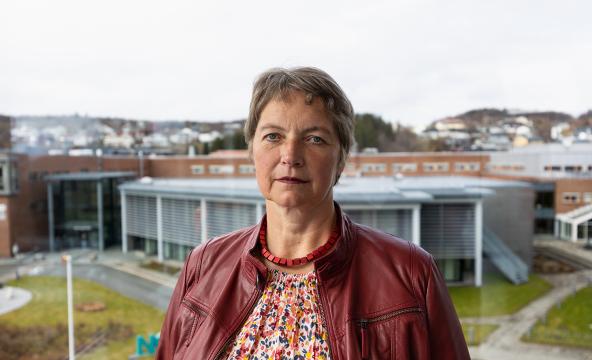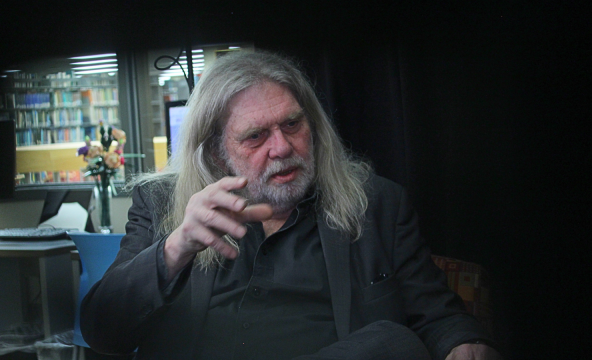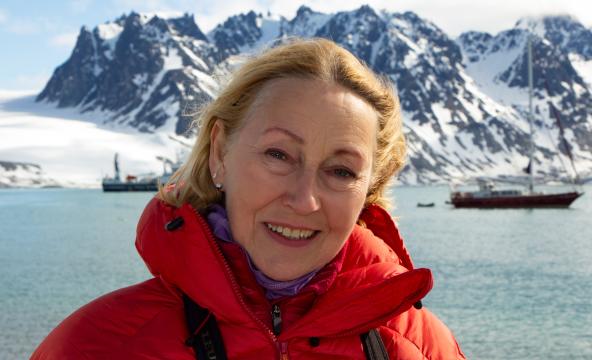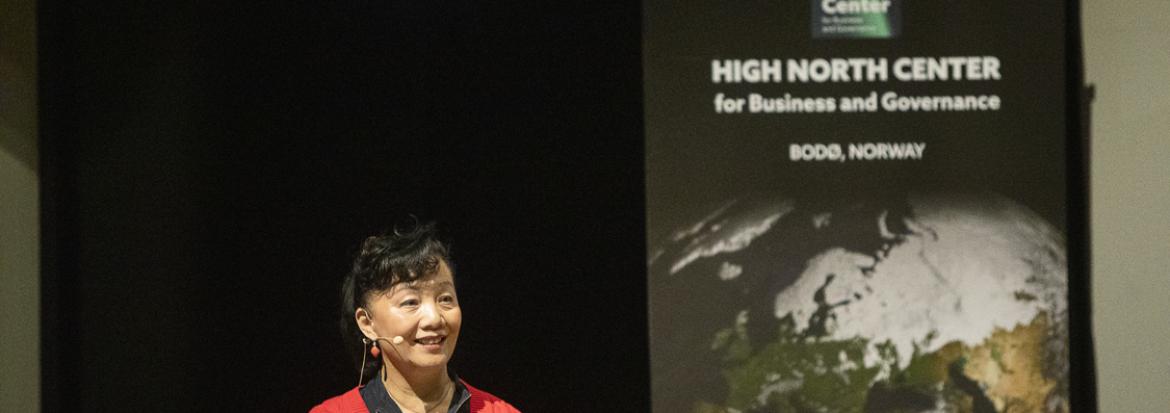
This article is more than one year old.
It was in the Literature Hall at Stormen library in Bodø that the event took place on Wednesday 21 September 2022.
Being in control
Hans Jørgen Gåsemyr from NUPI was the first person to in the section called China and the Global Value Chain. He has been to China many times and he talked about the digital development that has taken place in the country. He summarized China's digital policy as follows: To manage growth, create innovation and strengthen control.
Since 2008, China has also been the world's largest exporter of technology. Several people in the West have warned that the technology China supplies may contain spyware. Among other things, he referred to the debate surrounding Huawei and the mobile network in Norway. The number of employees in Norway in Chinese-owned companies reached a peak in 2019, but has decreased by several thousand in recent years. This probably has something to do with the Huawei case.
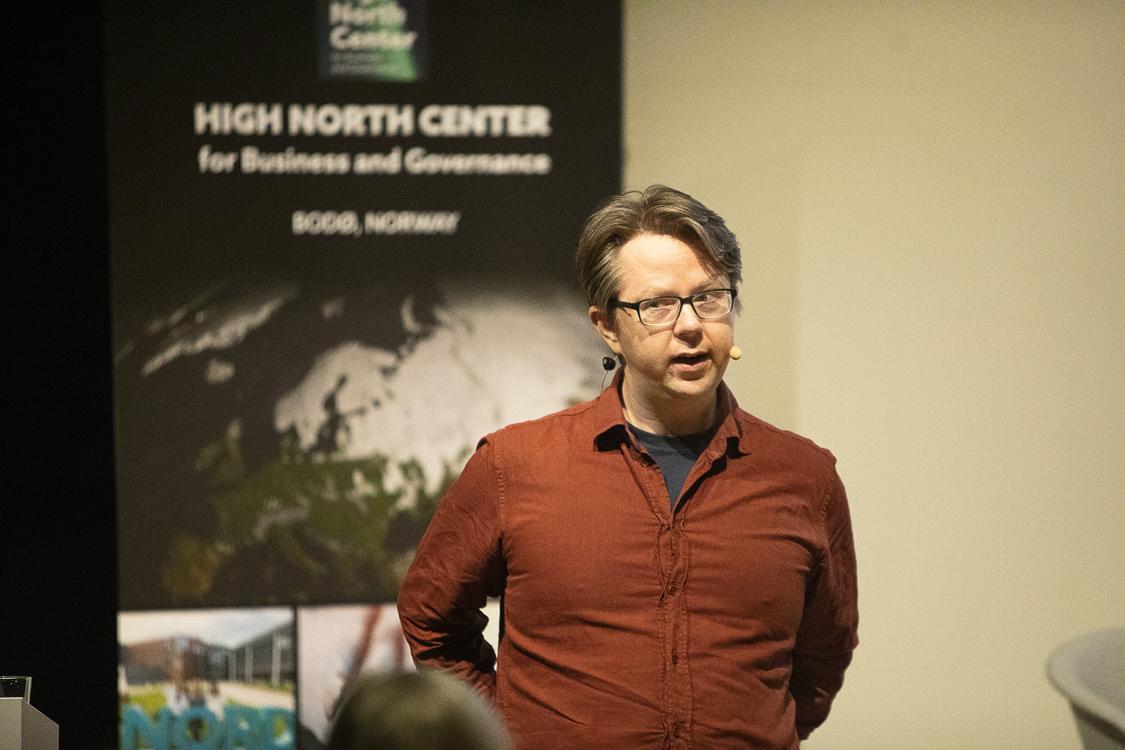
Scary, attractive and exotic
Professor Frode Nilssen from Nord University Business School took over the podium after Gåsemyr. He said that the image one has of China as one of the global powers (USA, Europe, Japan, Russia and China) is definitely not new.
- Although the view of the classic national security tension based on the relationship between political, military and economic power struggle between these states primarily belongs to history, we still see clear elements of this, albeit from a slightly different perspective, said Nilssen.
- The ealier classic situation with large superpowers in terms of military power is still present.
If you want to succeed in China, you have to be in China
He believed that the situation today is slightly different, which he believed had two reasons:
- The world of economics has become increasingly open
- The role of military power is less conspicuous
This despite the fact that China is putting more and more pressure on Taiwan and Ukraine is at war with Russia.
Nilssen then went through the history of China when it comes to international trade and global politics, not least the influence China has had over these areas in recent decades. Along the way, China has transformed global supply chains but also international diplomacy, leveraging its success to become the primary trade and development partner for emerging economies across Asia, Africa and Latin America.
What does China want with the Arctic?
The next item on the agenda, called The ArcGov project - China in the Arctic - was initiated by the director of the High North Center, Frode Mellemvik.
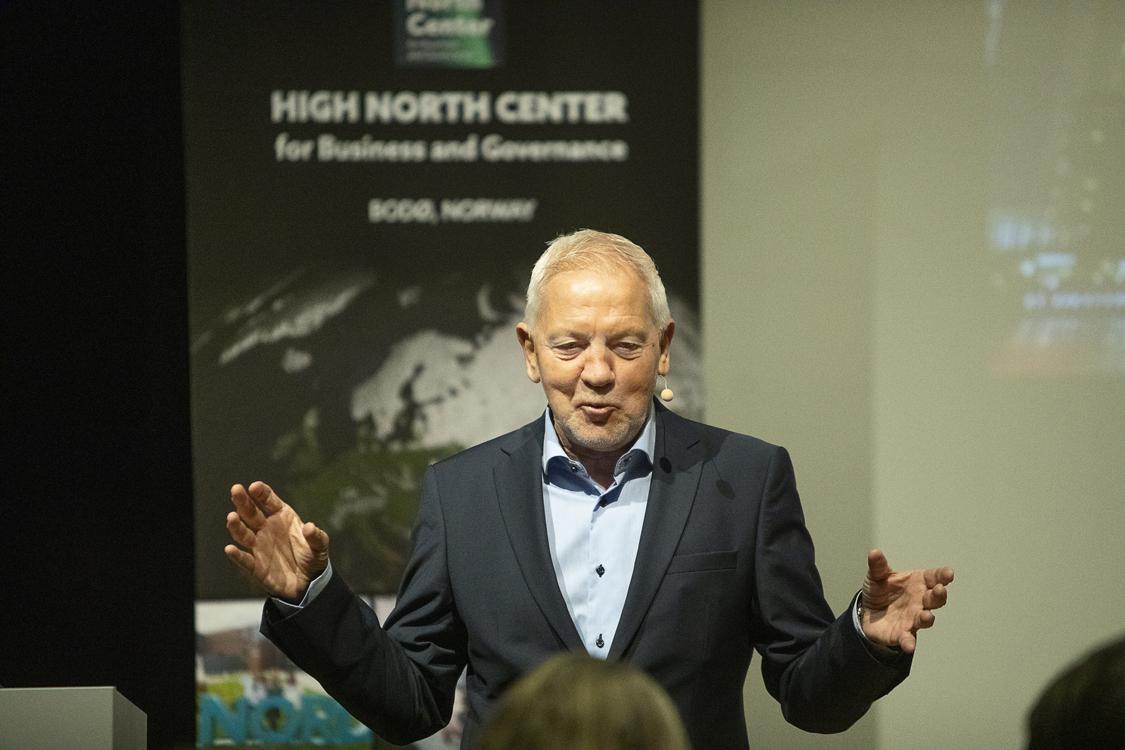
He presented the project ArcGov, which will look at China's influence in the Arctic, and what China is concerned with in the Arctic. The project will also discuss whether China influences developments in the Arctic and, if necessary, how. ArcGov is funded by the Research Council of Norway and is a collaboration between the High Nofth Center, Fridtjof Nansen Institute, The Arctic Institute Center for Circumpolar Security Studies (TAI), East China Normal University, Shanghai Institutes for International Studies and Hokkaido University Research Center.
You can read more at the homepage of the project
The Polar Silk Road
Professor Gøril M. Heggelund from the Fridtjof Nansen Institute spoke about China's history in the Arctic, not least when it comes to Svalbard. Environmental protection and climate change are the backbone of China's involvement in the Arctic
In their research, they have had good help from the experiences they have made when they have researched the climate changes that have occurred along the Yellow River. China has also had observer status in the Arctic Council since 2013 and has a long history when it comes to research on climate and the environment.
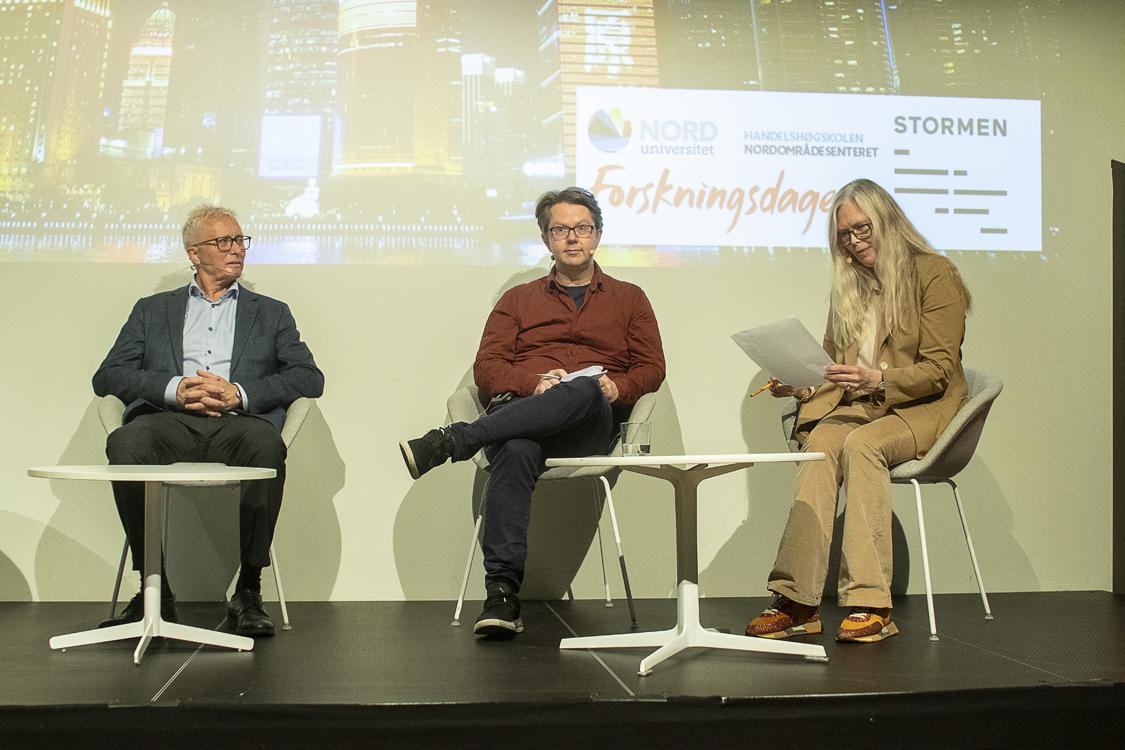
The Arctic is not a very important strategic area, from the point of view of the authorities in Beijing. The climate changes may make it possible to sail in the northern sea route for large parts of the year, which means increased boat traffic in the area. This opens up great opportunities as the transport time between Asia and Europe can be reduced by as much as 40%. This is referred to in China as the Polar Silk Road.
Research fellow on China's influence
Research fellow at the Nordic Center, Anders Christoffer Edstrøm at the Nordic Center takes his doctorate via the project ArcGov.
He talked about the four articles that will form part of the doctorate, and in particular about article one. This will discuss what is known about Chinese investments from previous research. The traditional academic understanding of international investment has been criticized for having a particularly Western starting point. Do Chinese investments differ from this understanding, and can the Arctic contribute new knowledge?
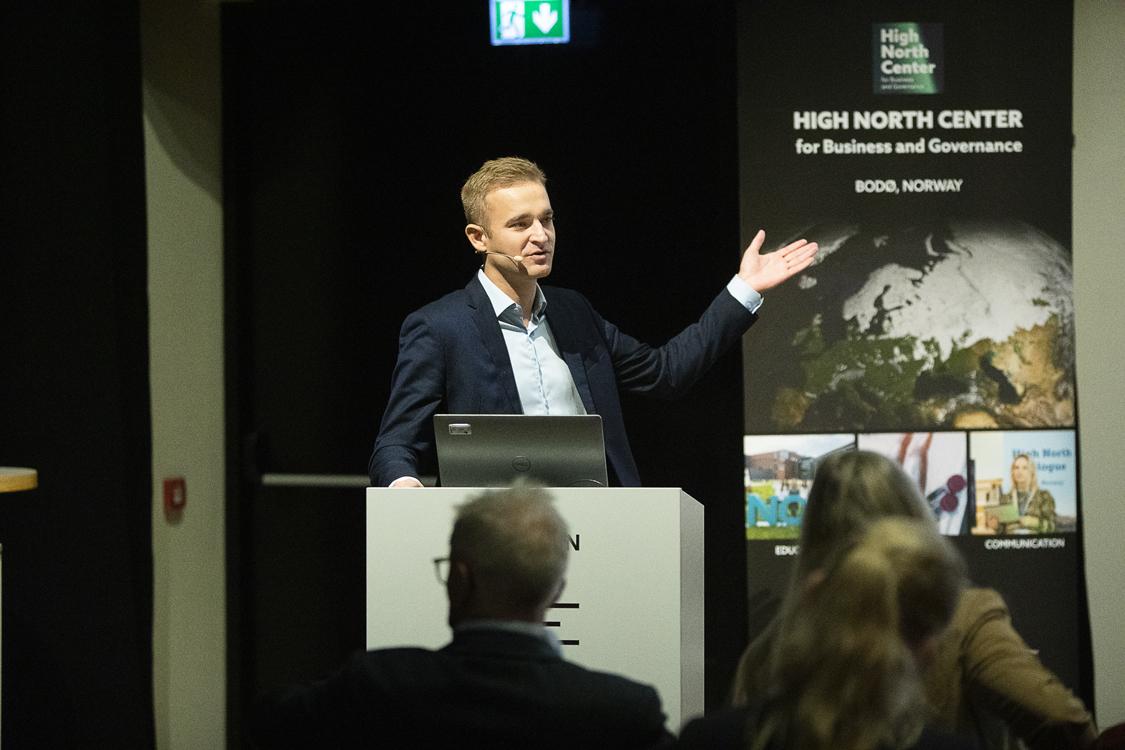
Said it like Yoda
The last item on the agenda was called China and Arctic Business. Founder and general manager of First Scandinavia, Per Arild Konradsen, talked about the work with establishing the Newton Flight Academy in Bejing, China. Work had been ongoing since 2019 and had been made difficult as a result of the pandemic. Many of the students in the audience really pricked up their ears when he shared his experiences around this with both failing and succeeding. As he said:
– Your plan is for everything to be a gentle climb, but in reality the road is bumpy, filled with water ditches and you will fall into sinkholes, from which you then climb up. Don't be such a Norwegian when you go out into the world. Become a global citizen! Learn and respect traditions and customs. Do. Or Do not. There is no try! And it's okay to fail.
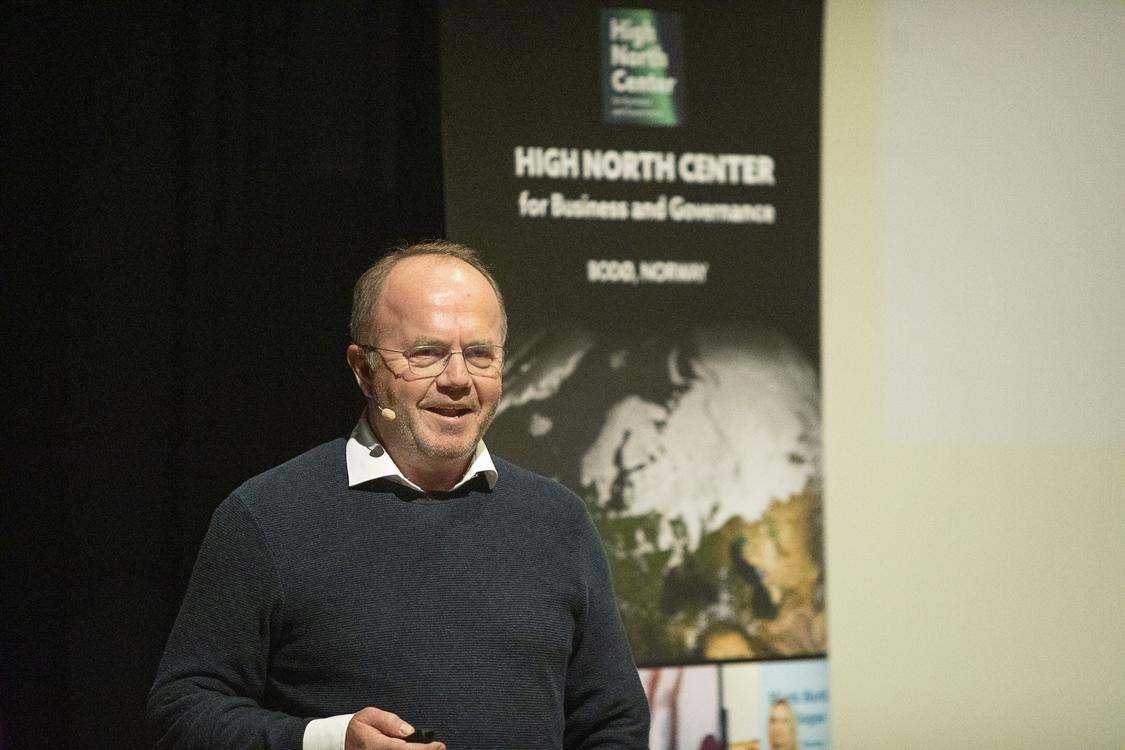
Spesielt var han nøye på å understreke at for å lykkes i Kina måtte du være i Kina. Det holder ikke å bare dra dit noen dager eller uker. Vær der.
Han demonstrerte også en metodikk for hvordan du bygger opp, pleier og husker nettverket du har bygget deg opp i et langtidsperspektiv.
Smart houses and the prevention of infection
Stephen Fu from Orient Holding AS in Bodø talked about what it has been like for him as a Chinese, who has lived in Norway since the mid-80s, to do business in Norway, with offices in both Norway and China. He showed Orient's model for ISO-certified purchasing routines for the purchase and import of slightly unusual products and talked about when he bought infection control equipment during the pandemic that Helse Nord was in great need of.
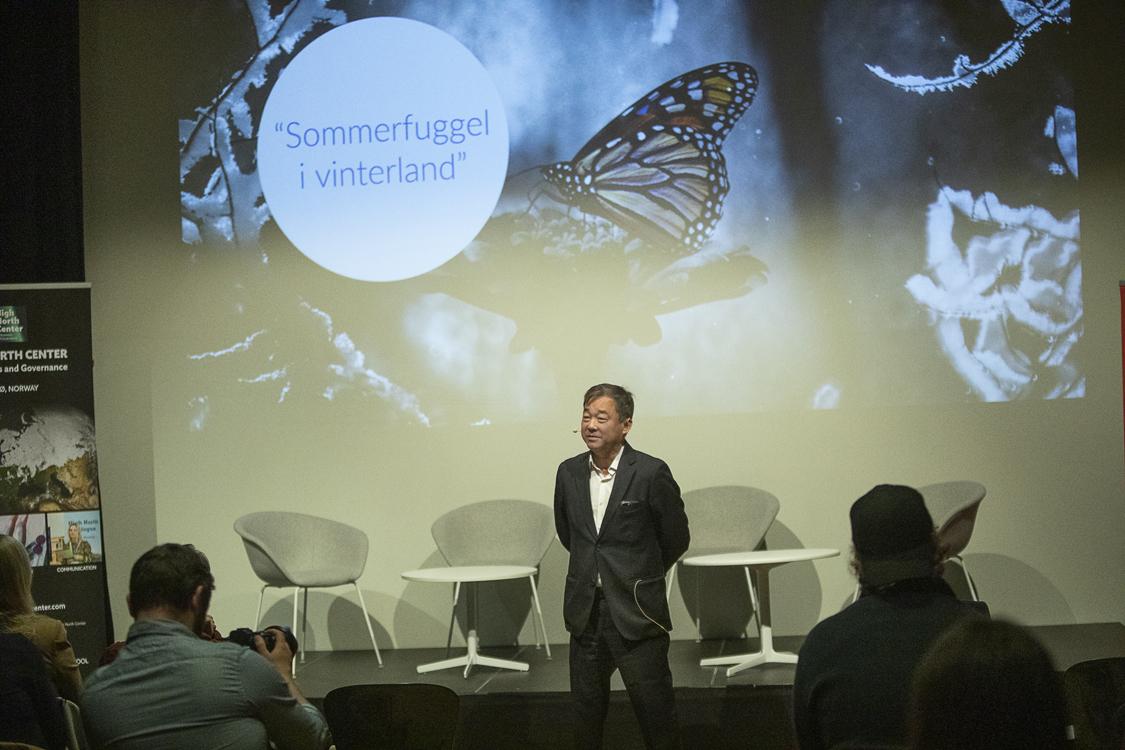
He is also involved in the construction of smart houses, boats that are designed in Norway and built in China and other property development, and has clients such as Coop, MASKE, Raufoss, Felleskjøpet and others.
Paper kite
Elise Chen from the Norwegian-Chinese Chamber of Commerce concluded by talking about the people-to-people cooperation that exists between Norway and China.
Paper Dialogues was an art project where Xiagouang Qiao from China and Karen Bit Vejie from Norway came together and made a huge kite out of paper. The kite was decorated with motifs from Chinese and Norwegian mythologies and real history. With the help of paper, colors and light, it became a work of art that was very well received by both critics and the public.
She also talked about the Chinese cultural festival that has been held in Norway several times since the mid-2000s and about the collaboration the Norwegian Sailing Federation had with the Chinese Olympic sailing team.
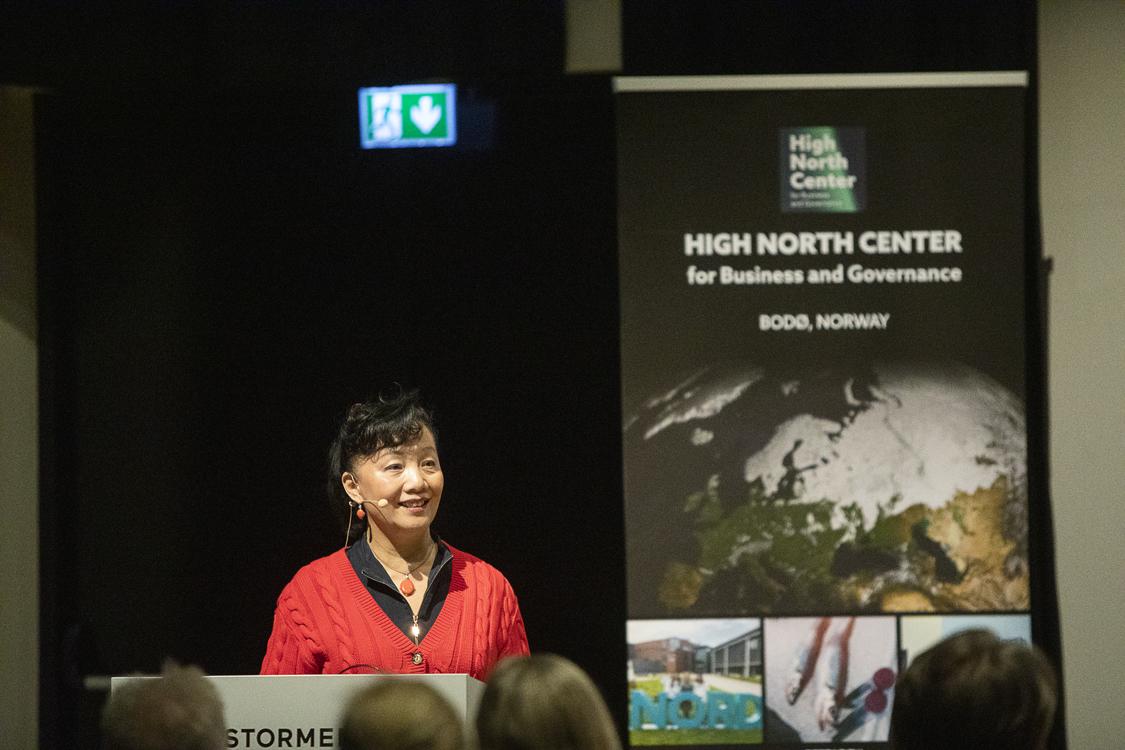
Several of the students who were present said they had been inspired, and several gathered in groups and talked about what they had heard about. And one of them quoted the motto Stephen Fu had shared with them.
- Success is not the end. Failure is not fatal. It is the courage to continue that counts.
You could not ask for a better Chinese proverb.
You can watch a recording of the entire seminar, divided into chapters, here:




